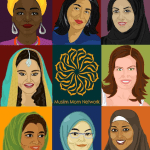
By Mustafa Ghani
“Every speech manifests whilst upon it is the shroud of the heart whence it came forth.” — Sīdī Ibn ‘Aṭā-Allāh, al-Ḥikam
I appreciate the motivating sentiments of the “Happy British Muslims” (HBM) video and deeply respect the people featured in it. The creators, from what I understand, simply wanted to showcase that Muslims do not fit the stock stereotypes promoted in the media, but rather are diverse, dynamic and, of course, happy. I think such goals are very commendable. But I do find it odd that British Muslims should sing and dance to the “Happy”-ness of a man who glorifies rape.
Pharrell Williams, the songwriter and performer of the “Happy” song, was also one of the main singers of the controversial “Blurred Lines” song that came out last summer. The extremely demeaning “Blurred Lines” video, featuring Pharrell and his boys dancing around three naked models in compromising positions, included such lyrical disgraces as “tried to domesticate you / But you’re an animal, baby, it’s in your nature,” “You the hottest bitch in this place,” and other abominations that do not deserve mention.
As many have pointed out, the rhetoric of the song bears an uncanny resemblance to the rhetoric of rape — the song has even been called a “rape anthem”. A powerful photo essay (also here) makes this very clear by juxtaposing lines from the song with the actual justifications of rapists as reported by survivors of sexual assault.
Regretfully, Pharrell has not apologized for his participation in the video; on the contrary, he has sought to defend it. (See also Madeleine Davies’s analysis of his comments.) Amongst his bizarre justifications include the fact that the piece was “written and shot by a female director, who’s a feminist.” (Is rape is unobjectionable if condoned by a feminist?) He claims the video is no more sexist than a museum wherein “a lot of the statues have their boobs out.
Of course, Pharrell adds that respects women; he recognizes that they could “kill off our species” just by “decid[ing] not to have babies.” At the end of the day, he’s just “a fun guy” who won’t shy from “mak[ing] another song where girls’ behinds are everywhere.”
Back to the HBM video: Is it not then at least questionable that Muslims have chosen to jump on the bandwagon of the many “Happy” parody videos that have been popping up of late? If the fantasy of sexual exploitation that Pharrell champions in “Blurred Lines” is what makes him “Happy,” I want nothing to do with it. This problem is reminiscent of the distasteful use of Jay-Z’s “Somewhere in America” song, with the line “Twerk, Miley, twerk”, as background to the Mipsterz video. (See also this open letter to Abbas Rattani, one of the creators of the video.)

I understand that efforts like HBM are essential for effective PR; indeed, the video has been mentioned positively in the Huffington Post and elsewhere. Some commentators have also noted that such efforts allow us to reach out to the young and disaffected in creative ways. But are there not lots of clever PR strategies we can adopt without compromising our moral compass or succumbing to the collective amnesia that defines our culture?
Part of our cultural imperative, surely, is to call our people back to good sense. I think it is extremely problematic that we (Muslims or otherwise) celebrate the predatory hedonism exemplified by men like Pharrell — God guide us and him! Are we really sending a dignified, wholesome and uplifting message to Muslim and non-Muslim communities by promoting the work of someone with very questionable judgment?
This is not just abstract philosophizing; these questions have real impact in how we as Muslims engage our broader societies. These questions are particularly relevant in the immediate wake of British Muslim Abu Eesa Niamatullah’s appalling and disgraceful ‘jokes’ about rape and International Women’s Day, which understandably provoked a vigorous outcry and even calls for his resignation from scholars and community leaders.
Are we not running a double standard by promoting people like Pharrell, who, unlike Abu Eesa, has not even offered a lackluster apology for his disgraceful comments? Where are the calls to boycott Pharrell, whose prior actions and words were at least as egregious as Abu Eesa’s, if not much more? Why do we give Pharrell the pass when we (rightly) take Abu Eesa to task?
Usama Canon, founder of the Ta’leef Collective and a tireless community activist who works closely with disaffected Muslims, makes important comments about how Muslims in the West must effect a calculated integration into their society. In part, this entails that we not just be “passive objects” of a received culture, but rather that we take a critical and active approach in appropriating culture that is truly uplifting and authentic.
We do not blindly imitate everything that is in vogue around us, especially if it is demeaning. Posing the hypothetical scenario of Muslims who want to make an Islamic version of the twerk, ostensibly for the purpose of fostering a relevant American Muslim culture, Cannon comments, “No, we don’t want to be like them: … people that are doing things that are not respecting American culture. They’re not respecting humanity. They’re not respecting basic human dignity.”
We have to hold ourselves to higher standards. Who we are and what we represent as a community is at stake.
Mustafa Ghani is a student based in Edmonton, Canada. He recently completed an undergraduate degree in history and has been informally studying the Islamic sciences for the past few years.














